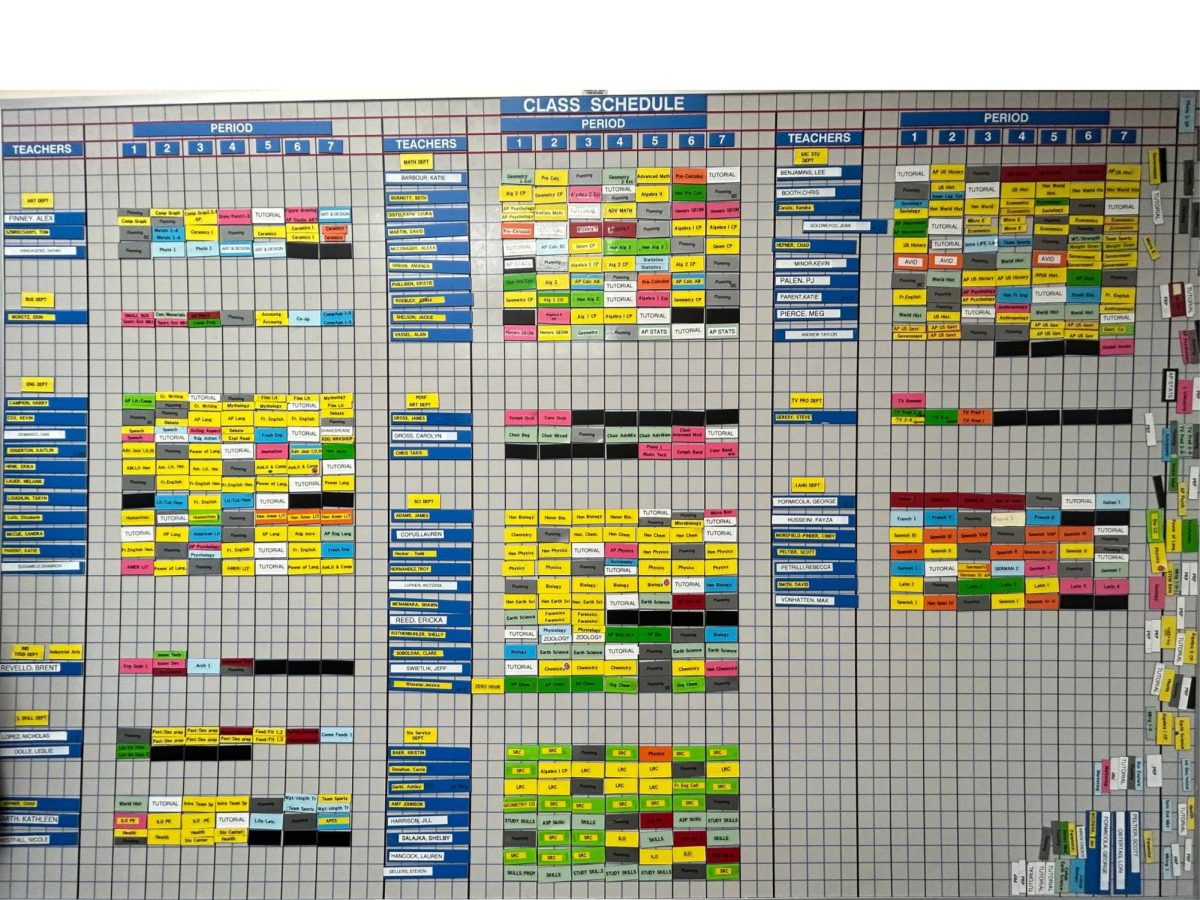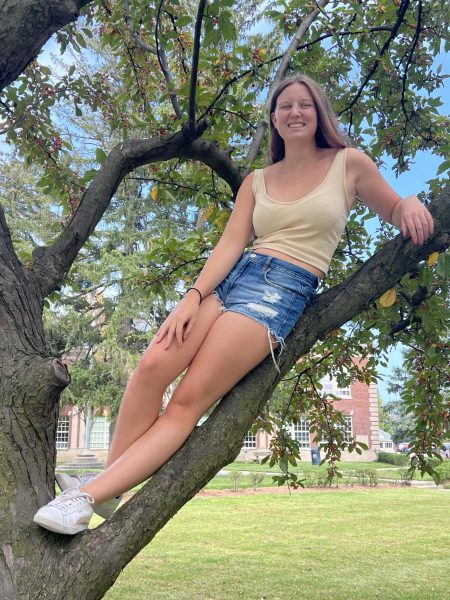Back-to-school season comes with many new adventures, including students discovering their new schedule. After picking and submitting classes in March, schedules leave students’ hands until June.
During this time, Grosse Pointe South counselors and administrators are in a delicate dance attempting to create each schedule that meets each the students’ needs and what South can offer. Vice Principal Joseph Spryszak is in charge of the “master schedule”—the schedule that arranges each class by hour—and works tirelessly to accommodate as many students as possible.
“We don’t have much time, but as soon as May comes around, we run the master schedule,” Spryszak said. “Then, the classes get arranged so that the classes can maximize our student participation.”
When creating each schedule there is an emphasis on the core academic classes, with electives used to fill out the day. The program used to lay out each student’s plan holds some electives of a stronger importance than others.“
We work it out that way so that it’s all about the classes where the kids can maximize (participation),” Spryszak said. “The AP classes are also electives, even though they’re academics. When we take a look at that, we still work it out so that it can get the maximum out of students.
”Not every class that is offered runs each year. There are many options offered to students that often do not gain enough support to run, causing students to have to move to backup options.
“The district will tell us what they would have to have as the number of students (in each class). Spryzak said. “Sometimes in the English department, there’s classes like Shakespeare, Picture Literature, British Literature (which) get some kids in it. British literature, for instance, every year we might get anywhere from eight to 12 kids. We can’t run the class (with that few of students) and we’ll go we’ll tell the counselors.”
Not only does classes not having enough enrollment change teachers’ plans, but it also affects students’ plans. Ella Johnson ’24 has been intrigued by many English elective classes for years but has not had the opportunity to take them due to student interest.
“I signed up for Shakespeare as well as some other fun classes,” Johnson said. “Unfortunately, they don’t always fill up, which is a bummer because I liked to join those classes. Sometimes they’re things that I’m really passionate about.”
When choosing classes, students often focus on their interests and passions and having a lack of teachers or interest can derail their plans.“I have to take classes that I might not like instead,” Johnson said.
“So sometimes, it’s nice to have a really fun class that I enjoy, but if I don’t or can’t get into the electives that I want, then I’m kind of just stuck.”
Electives are also not picked up for the school year due to other circumstances, such as putting a teacher in a difficult position.
Math teacher Amanda Orban has taught over five different math classes and has experienced the change in electives firsthand.
“Changes are always going to be tough and the transition of teachers leaving and replacements has been challenging,” Orban said. “Our business class teacher leaving and unfortunately not being able to fill the role has led to some of those classes devolving and students being placed elsewhere.”
Orban is the only teacher currently teaching elementary statistics in the district because not enough students were interested in Grosse Pointe North for the class to run. This has provided Orban flexibility in her classroom which has been helpful as she navigates having additional students in her class.“
It gives you a lot more ability to pause or move forward when you feel like students are stuck or need a further explanation, or if things are flowing smoothly, you may be able to move faster at a faster pace than you have previously had been,” Orban said. “In statistics, I’m just giving those kids some extra days to catch up, extra opportunities to touch base and ask questions and get back on track.”
With each moving part, students, teachers and administrators are presented a new challenge and a chance for collaboration with schedules. Electives are an additional opportunity for students to learn new information and for teachers to share different curriculums.“
They are scheduled always before you leave (summer) so that when you come back you have a schedule ready to go,” Spryszak said. “It’s kind of an art in a sense, but it is fully logical at how it goes. It takes a little creativity to put this together.”












































































